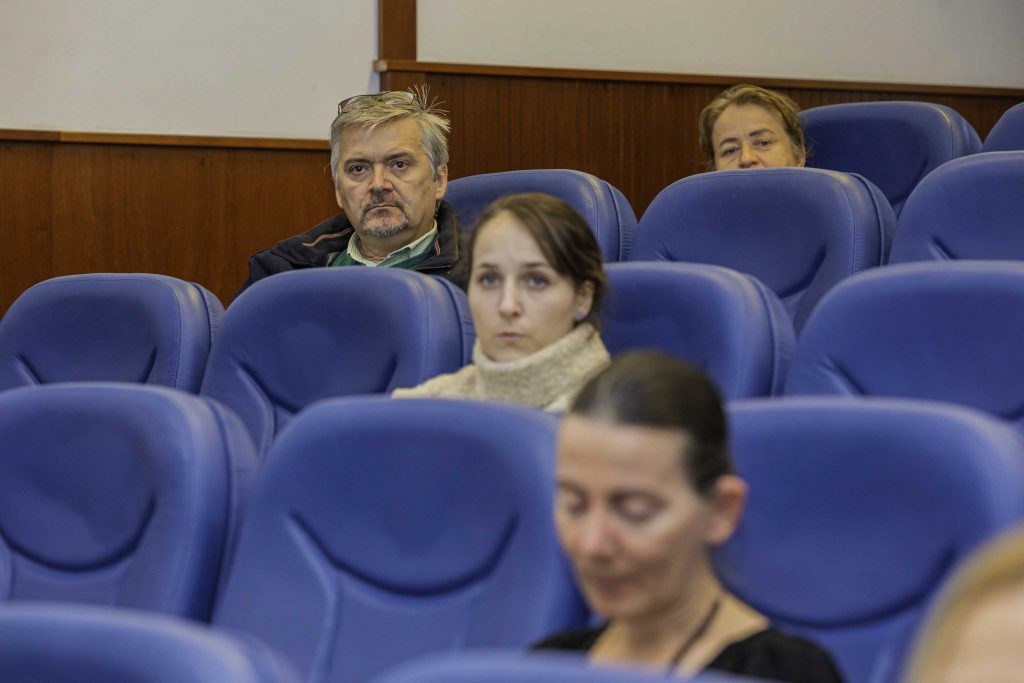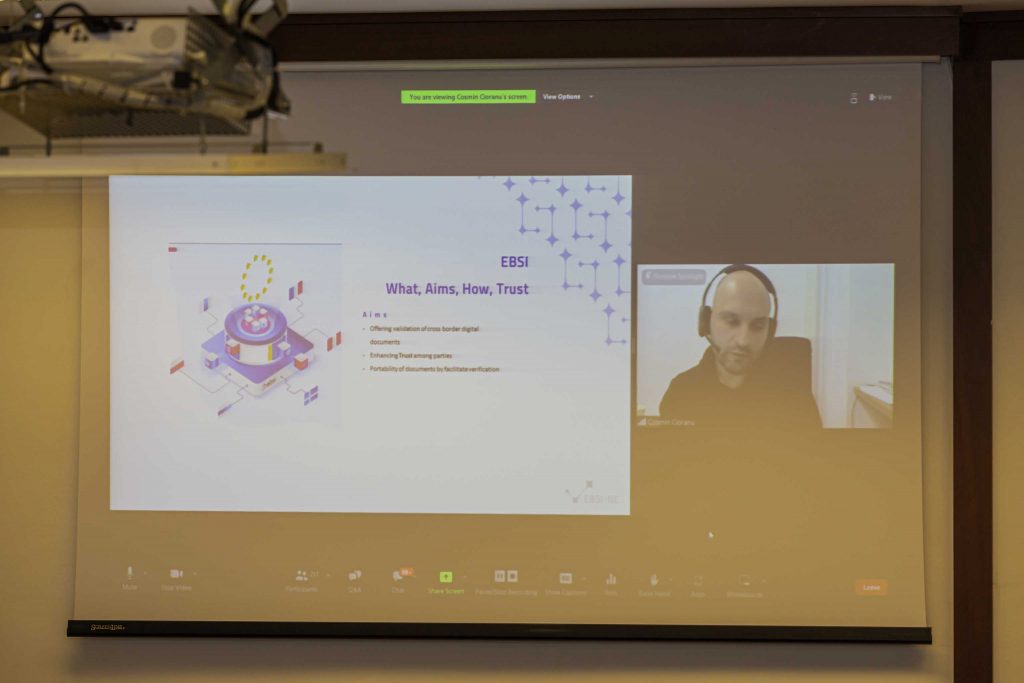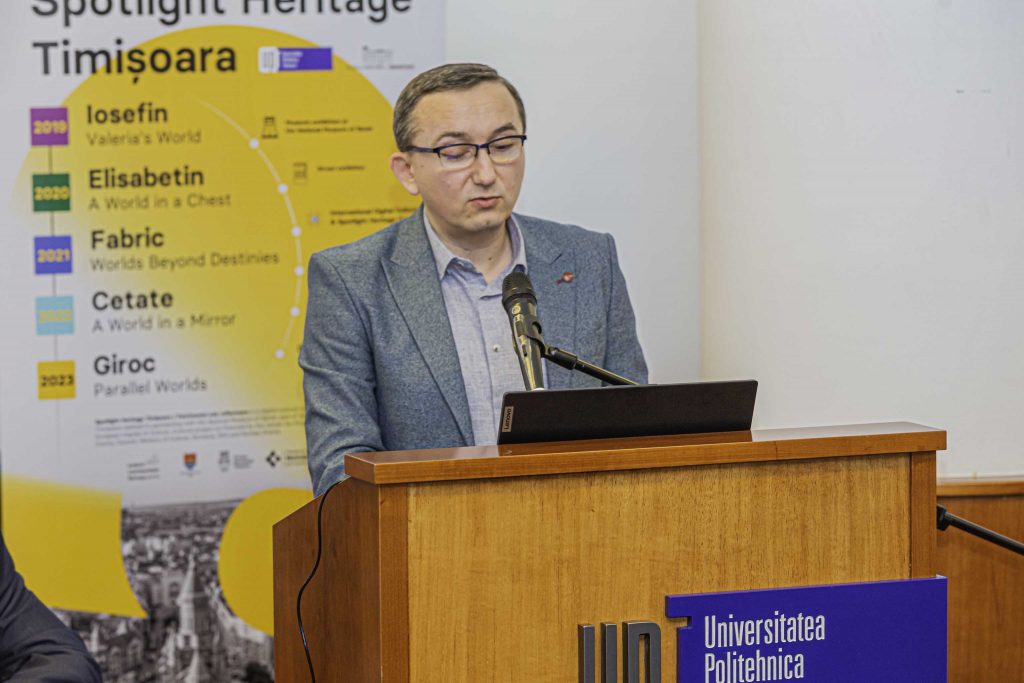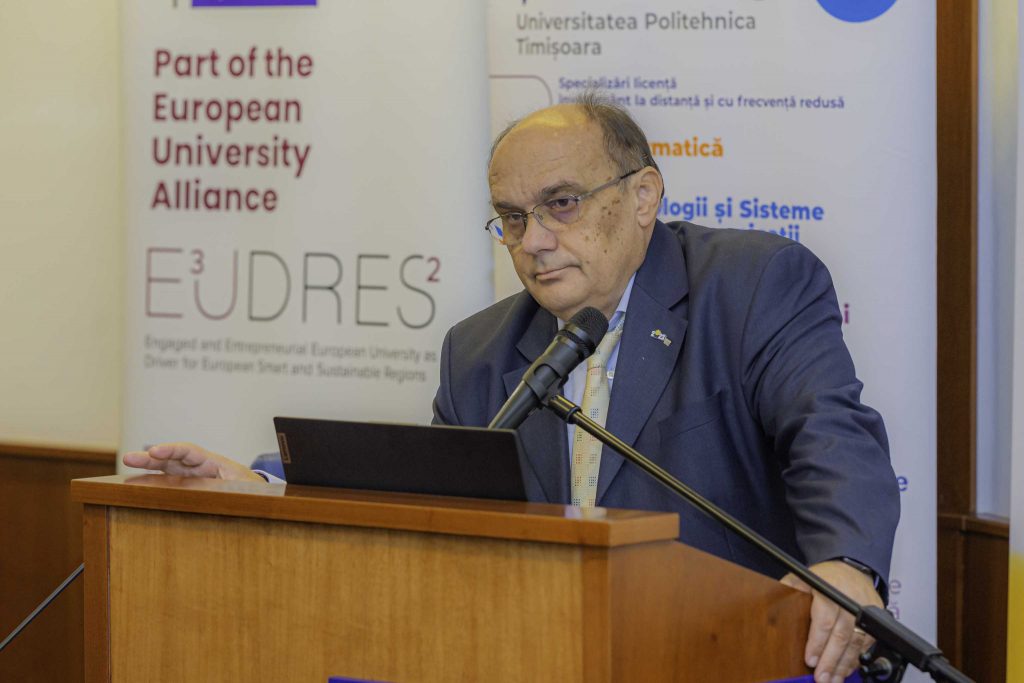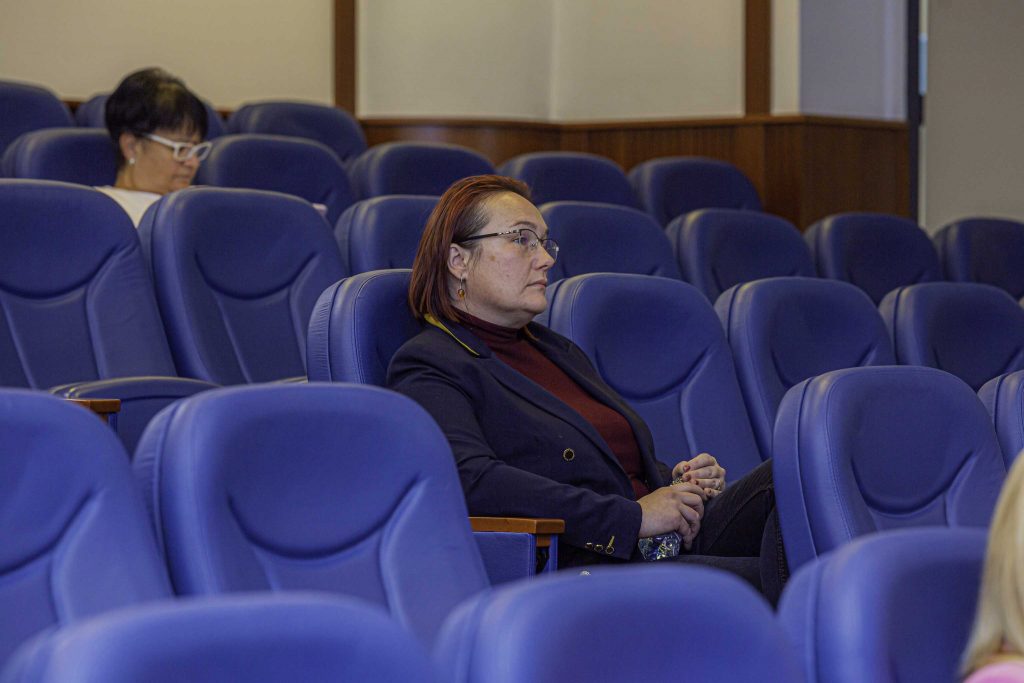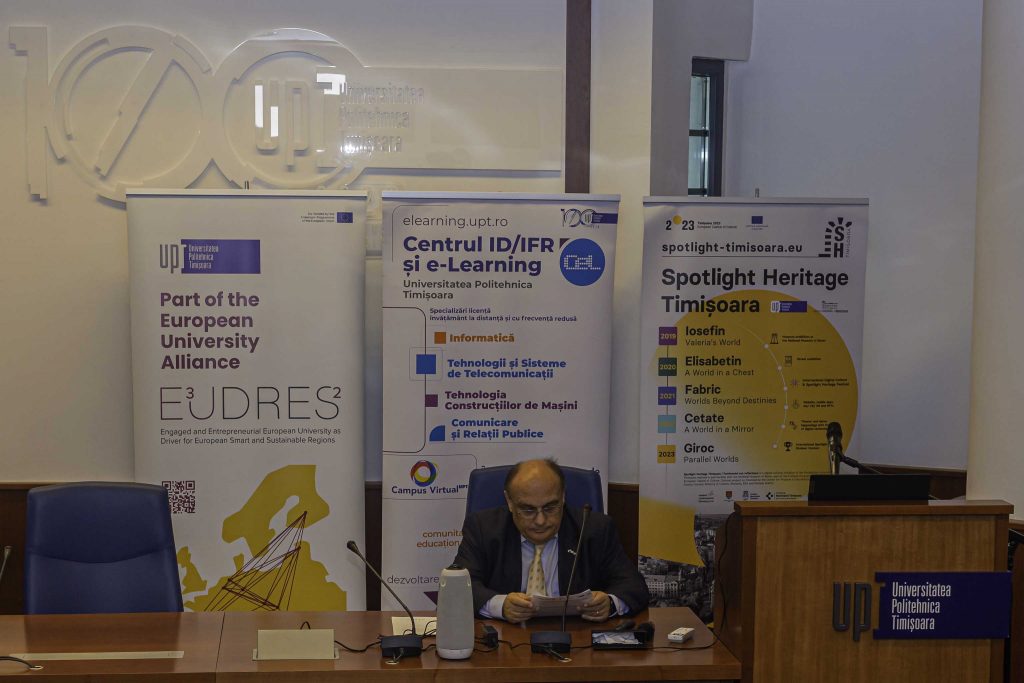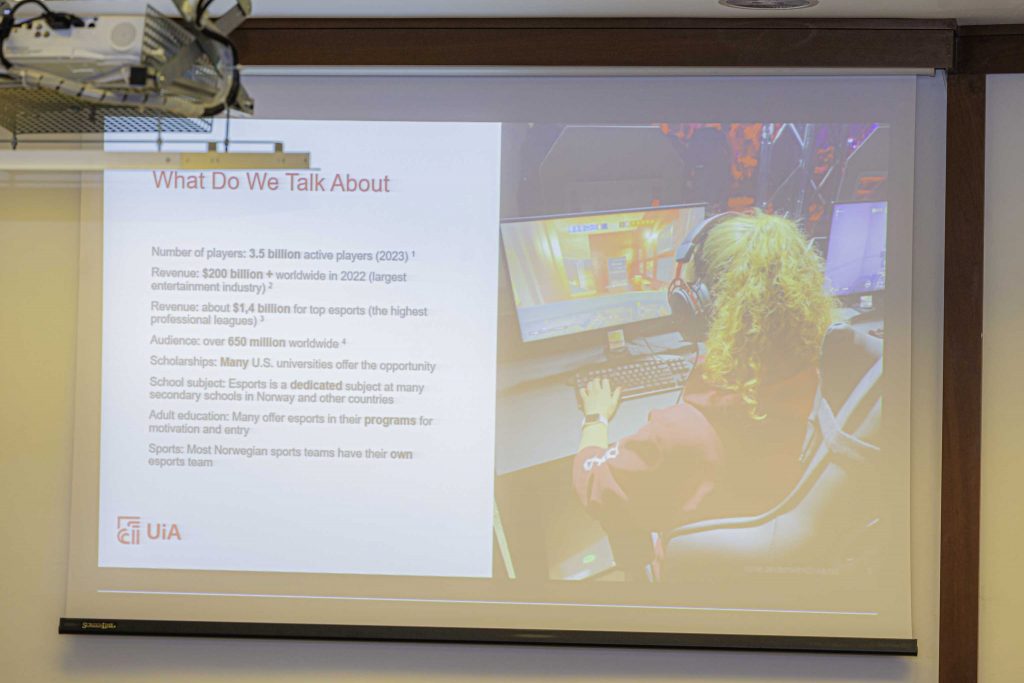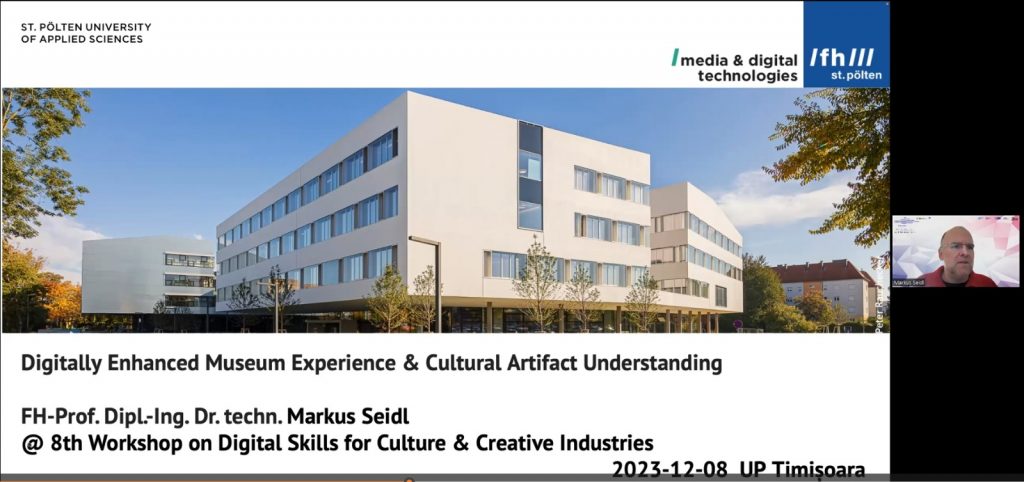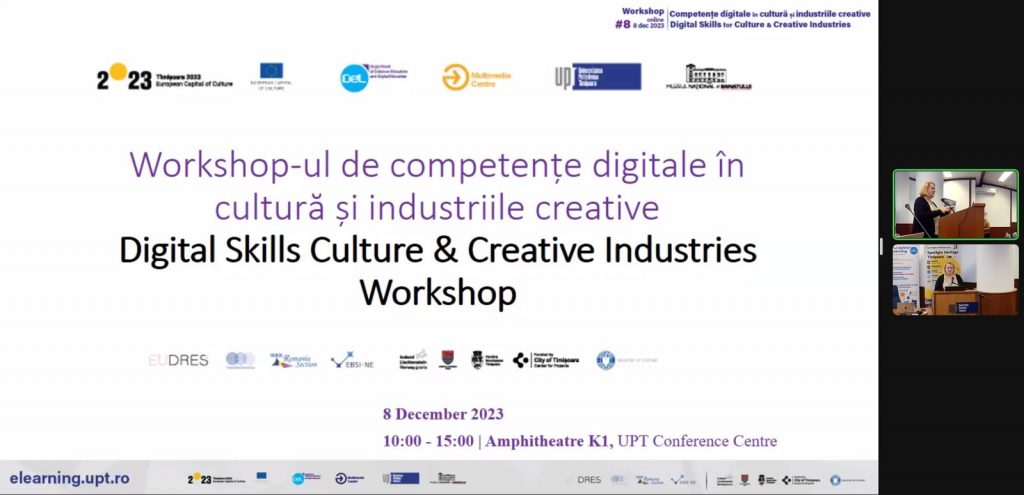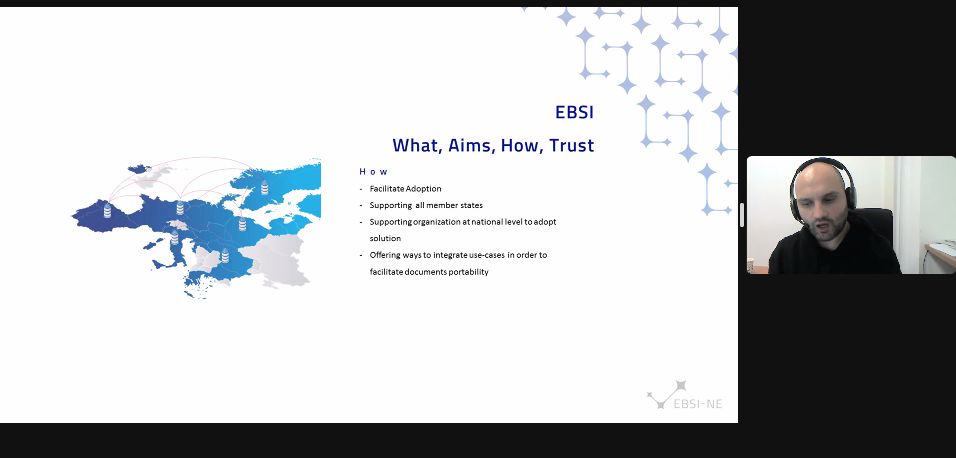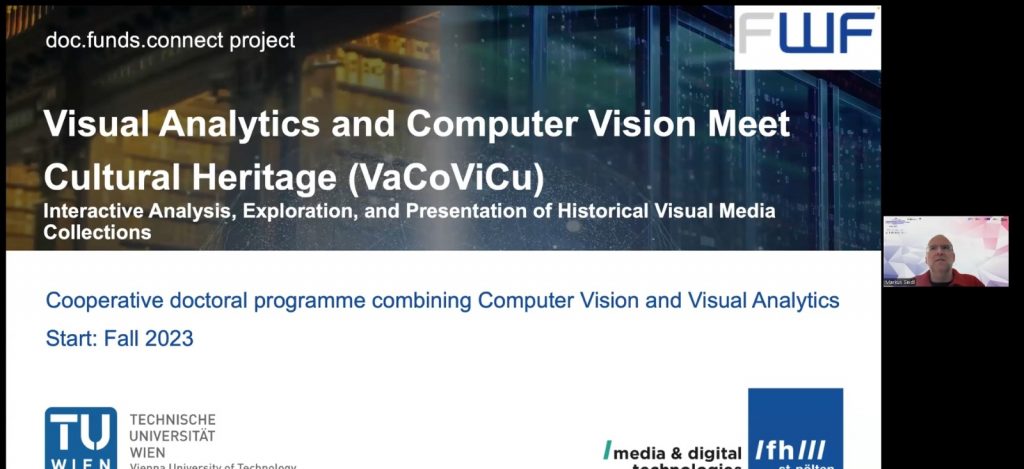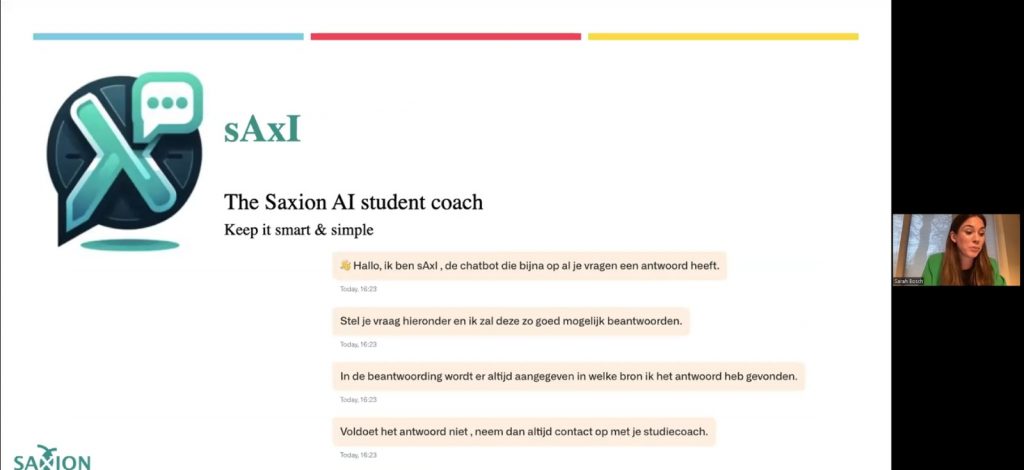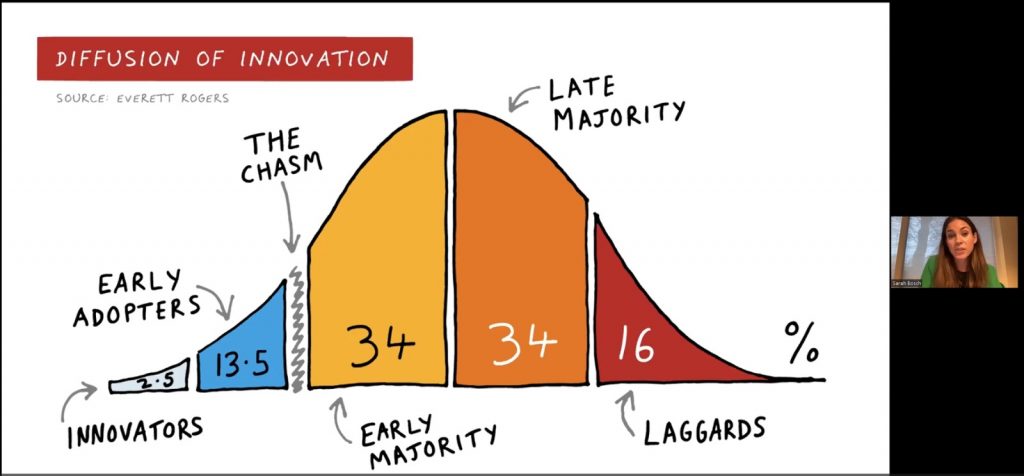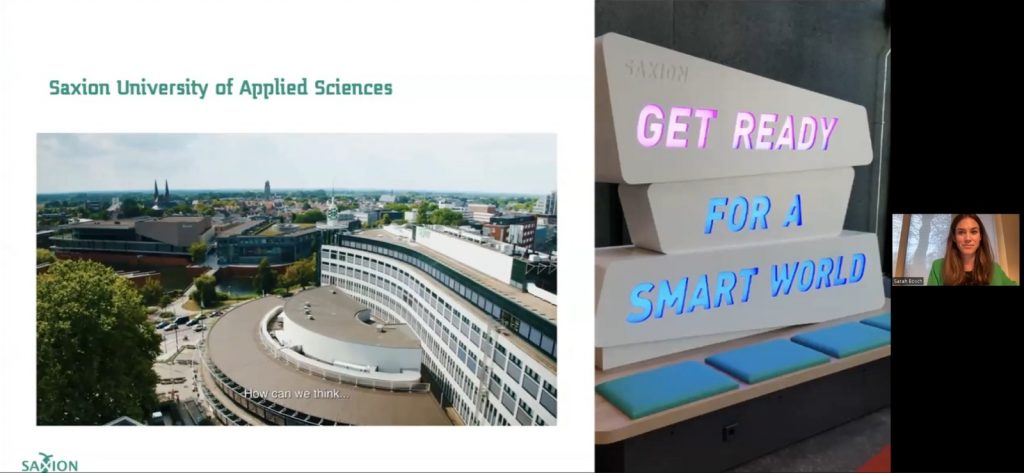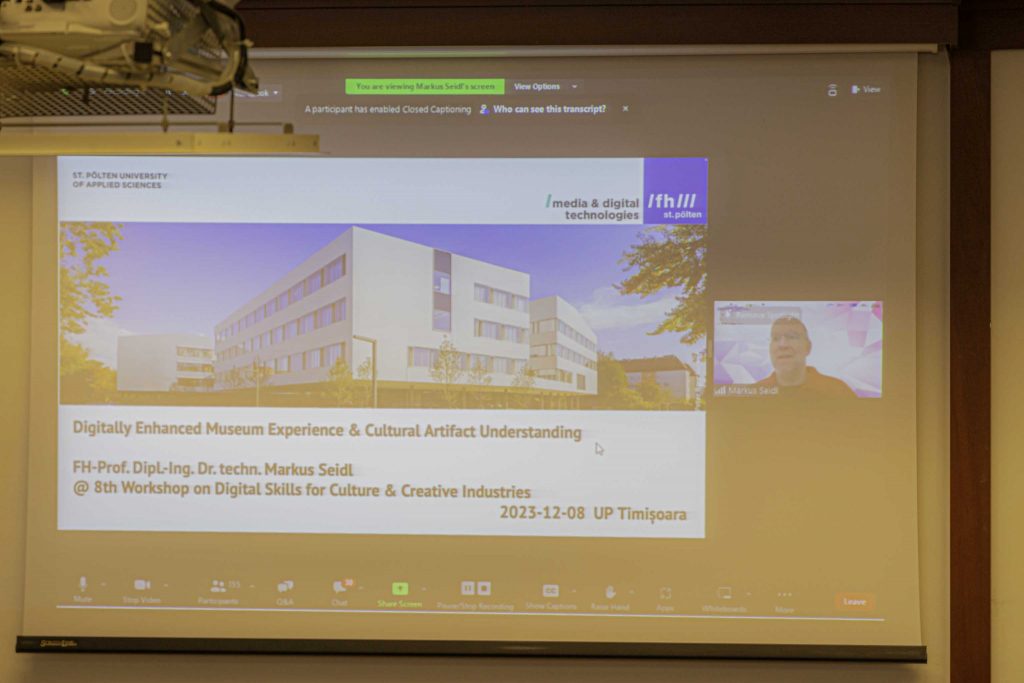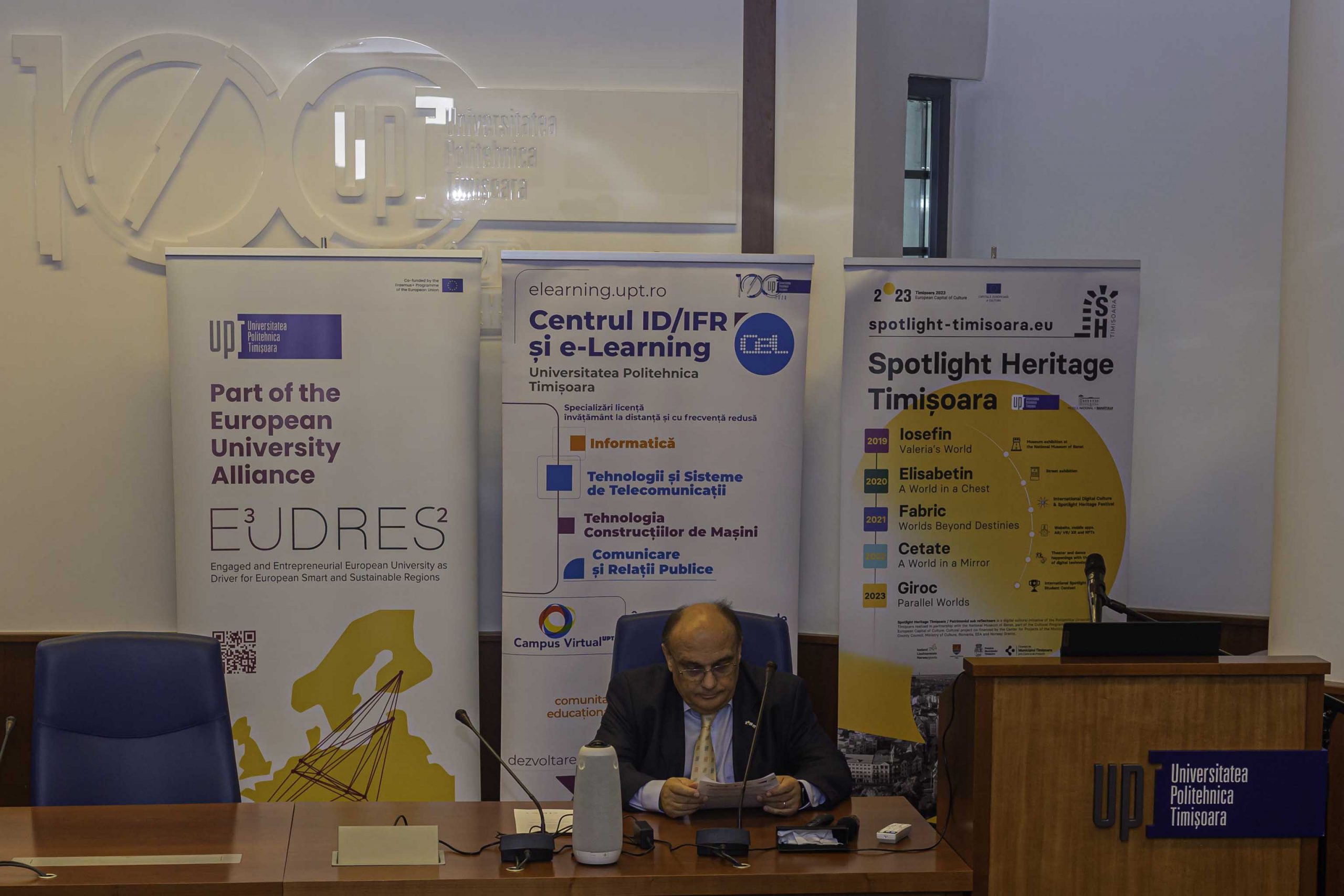
Expertise on the implication of digitalisation and innovation in education at the EBSI-NE Demystification Seminar, included in the 8th Digital Skills Workshop
Hundreds of participants from Romania and abroad, from the academic fields, innovation and creative industries sectors, gathered on Friday, 8 December 2023, for the eighth edition of the International Digital Skills Workshop.
National and international experts (from the USA, Austria, the Netherlands, Norway, Greece, Italy, Spain, Sweden and Romania), students and experts demonstrated through practical examples the impact that digital skills, and digitalisation can have in education, creative industries, education and how they can stimulate innovation.
Politehnica University of Timisoara hosted the eighth edition of the Digital Skills Workshop - a key event of the international collaboration of the Politehnica University of Timisoara with actors from the technical, digital and cultural environments. In collaboration with the Department of ID/IFR and Digital Education, the Multimedia Centre, the E³UDRES² Alliance of European Universities, the National Museum of Banat, the EBSI-NE Project and IEEE Romania, the workshop was a real opportunity for participants to exchange ideas and present the latest innovations in the digital world.
Participants, including experts from USA, Austria, Holland, Norway, Greece, Italy, Spain, Sweden and Romania, together with students, were dedicated to presenting and debating topics of vital importance for today's digital industry. The event took place both physically, in the Conference Centre of Politehnica University of Timisoara (UPT), with 50 participants, and online, being simultaneously broadcast on the Zoom and Facebook platforms, where more than 750 people attended.
The event was divided into two main sections, with the first part consisting of a public EBSI-NE demystification seminar, where the expansion of EBSI nodes and the Digital Europe Programme (DEP) were discussed, highlighting the vital support provided by the European Blockchain Services Infrastructure (EBSI). Here's a closer look at the key topics covered by speakers:
- EBSI-NE: European Blockchain Service Infrastructure – Expansion of Nodes and Support Services: This session focused on EBSI-NE, a groundbreaking initiative leveraging blockchain technology to facilitate secure data exchange across Europe. Presentations by UPT's Prof. univ. dr. eng Radu Vasiu, dr. eng. Diana Andone and dr. eng. Carmen Holotescu ("Ioan Slavici" University of Timișoara), together with Cosmin Cioranu (UEFISCDI) delved into the project's overall vision, UPT's role in its development, and the establishment of support centers to ensure its successful implementation.
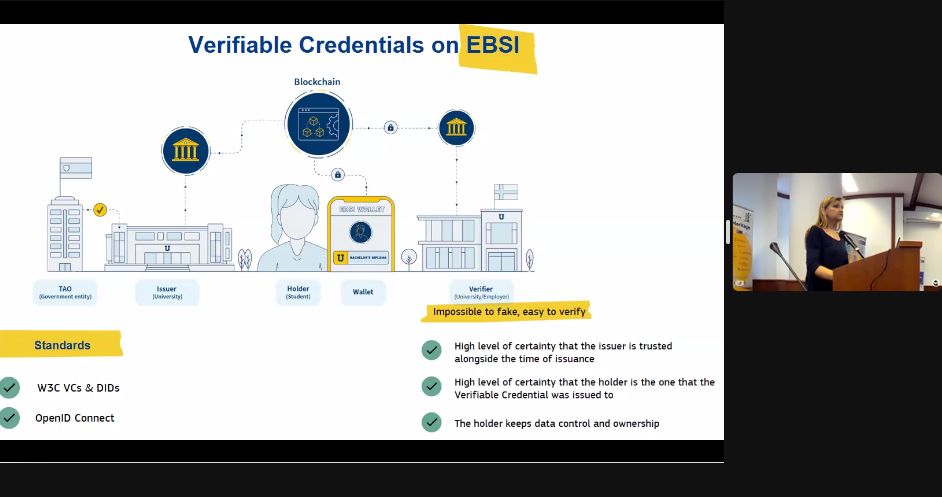
"Currently, Romania benefits from an EBSI node installed at the UEFISCDI level, so available for the university environment, and we have already made a case study and provided some models by which that single registry for university studies in Romania can eventually be exported into blockchain technologies and made available to all universities in Romania, i.e. to all partners in the European Union who want to check the status and competences of a particular student or graduate. There is one more node in Romania at ICI Bucharest (National Institute for Research and Development in Computer Science) and one at the Romanian STS service, and the fourth node will be established at the Politehnica University of Timisoara in 2024.", said prof. dr. eng. Radu Vasiu on the role that Politehnica University of Timisoara and UEFISCDI have in EBSI-NE, and how it plans to develop yet another EBSI node in the country for the academic environment at the university level.
"Romania, through a number of organisations that are part of EBSI, is a pioneer for blockchain applications in the public domain", began dr. Carmen Holotescu from the "Ioan Slavici" University of Timișoara. "As my colleague Andrei will point out, verifiable credentials are based on open standards, and they make diplomas impossible to forge, are secure, are issued at the holder's or student's request by a university or training provider, and can be recognised and verified by the university where graduates wish to continue their studies", she continued.
- • How Verifiable Credentials on EBSI Enhance Education and Digital Skills: This session, led by lect. dr. eng. Andrei Ternauciuc and PhD. stud. eng. Victor Holotescu, from UPT, explored the potential of verifiable credentials issued on the EBSI network. Verifiable credentials are tamper-proof digital records that can be used to securely verify an individual's skills and qualifications. The discussion centered on how this technology can revolutionize education by streamlining credential issuance and verification, ultimately improving the recognition and portability of digital skills across borders.
"We insisted on popularizing the use of blockchain technology in areas with high potential beyond cryptocurrencies, focusing on case studies, such as the situation where a student can apply for and receive a bachelor's/master's/doctoral degree in a digital wallet based on the EBSI Blockchain",presented lect. dr. eng. Andrei Ternauciuc.
- Update on EBSI Clusters for Education and Other Sectors: Lluís Alfons Ariño Martín, international expert from Universitat Rovira I Virgili (Spain), joined the workshop virtually to provide an update on EBSI clusters. EBSI clusters are groups of organizations working together to leverage EBSI's capabilities for specific purposes. His presentation focused on the latest developments in EBSI clusters dedicated to education, potentially exploring how other sectors can also benefit from this collaborative approach.
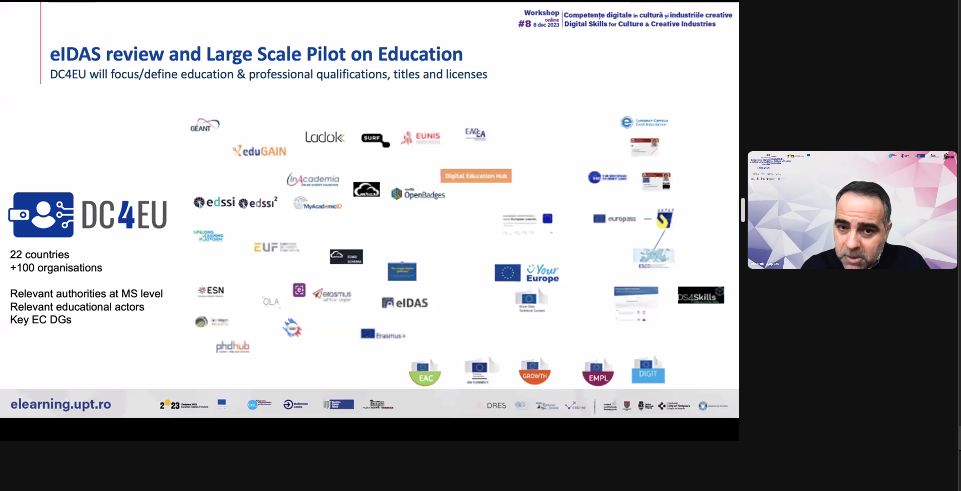
"EBSI clusters dedicated to education are making significant strides, and the learnings from these collaborations can be a valuable blueprint for other sectors. By working together within a secure and trusted environment like EBSI, organizations can streamline processes, share resources more effectively, and ultimately achieve greater impact", said Lluís Alfons Ariño Martín, from the Universitat Rovira I Virgili, Spain.
- NFTs used in more areas than technology: PhD stud. eng. Victor Holotescu presented "Collection of the Spotlight Heritage Timișoara NFTs". NFTs (Non-Fungible Tokens) are unique digital assets that can be used to represent ownership of real-world or digital items. This session explored how UPT is utilizing NFTs to create a digital collection of Timisoara's cultural heritage, highlighting the potential of NFTs for cultural preservation and engagement into the digital world.
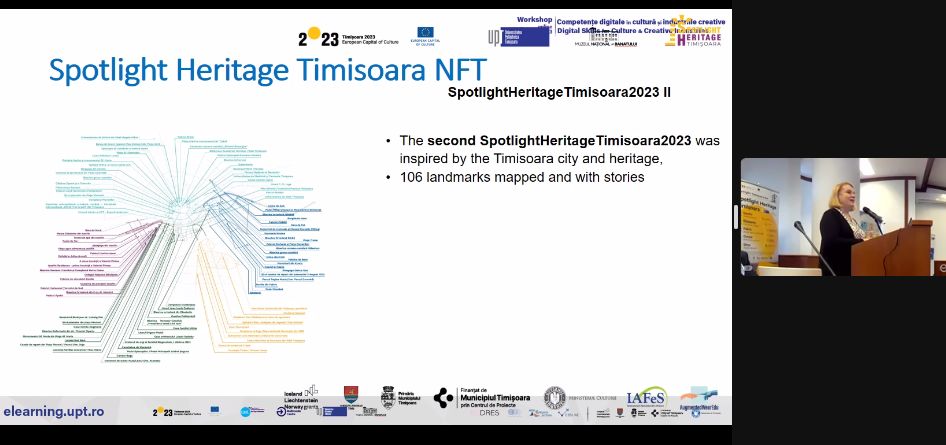
"By creating a digital collection of Timisoara's cultural treasures, we can ensure wider accessibility and engagement, while also exploring new avenues for safeguarding our heritage for future generations", stated Phd. stud. eng. Victor Holotescu from UPT.
The workshop also included case studies about the impact of digitalization on education and culture, with examples from Timisoara and Europe, as well as studies on initiatives and projects that can shape the education of the future. Examples of good practice include the EBSI-NE, OpenDigCompEdu, E³UDRES² and Spotlight Heritage Timișoara.
Attendance was free, presentations were in both Romanian and English and participants received Digital Skills for Education & Innovation Participant Open Badges for online participation and in addition, for those present in the first seminar EBSI-NE Digital Badges, and Certificates of Participation were offered to the participants in the room.
All workshops will be integrated with activities and quizzes into UPT's free online course platform, UniCampus and can be taken by anyone, with a certificate of completion awarded at the end.
The event registration as well as further information about the topics discussed and presenters is available at: https://elearning.upt.ro/ro/event/workshop-digital-skills-2023/
